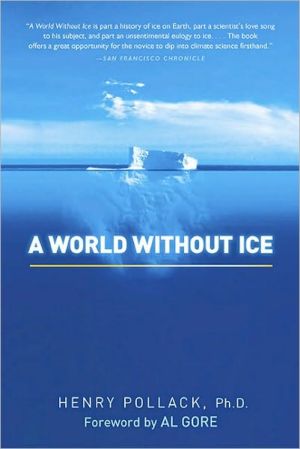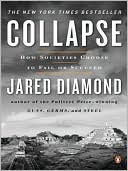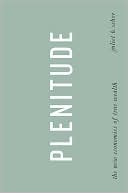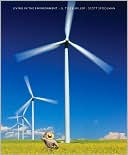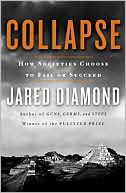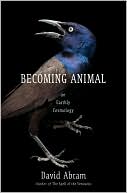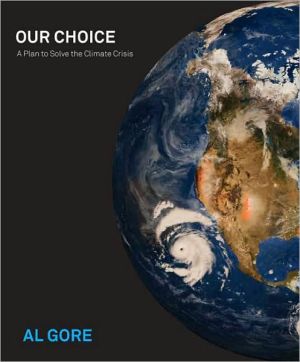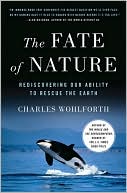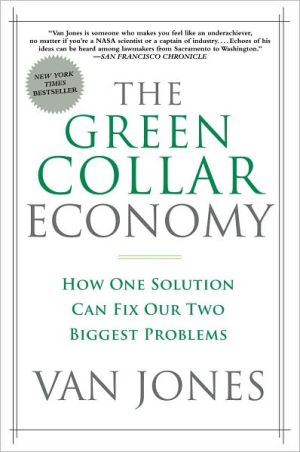A World Without Ice
A cowinner of the 2007 Nobel Peace Prize offers a clear-eyed explanation of the planet's imperiled ice.\ Much has been written about global warming, but the crucial relationship between people and ice has received little focus-until now. As one of the world's leading experts on climate change, Henry Pollack provides an accessible, comprehensive survey of ice as a force of nature and the potential consequences as we face the possibility of a world without ice.\ A World Without Ice traces the...
Search in google:
A cowinner of the 2007 Nobel Peace Prize offers a clear-eyed explanation of the planet's imperiled ice. Much has been written about global warming, but the crucial relationship between people and ice has received little focus-until now. As one of the world's leading experts on climate change, Henry Pollack provides an accessible, comprehensive survey of ice as a force of nature and the potential consequences as we face the possibility of a world without ice. A World Without Ice traces the effect of mountain glaciers on supplies of drinking water and agricultural irrigation, as well as the current results of melting permafrost and shrinking Arctic sea ice-a situation that has degraded the habitat of numerous animals and sparked an international race for seabed oil and minerals. Catastrophic possibilities loom, including rising sea levels and subsequent flooding of low-lying regions worldwide. A World Without Ice answers our most urgent questions about this pending crisis, laying out the necessary steps for managing the unavoidable and avoiding the unmanageable. Library Journal In this outstanding book, Pollack, who shared the 2007 Nobel Peace Prize with his colleagues on the Intergovernmental Panel on Climate Change and former vice president Al Gore, explains the role that ice, especially polar ice, plays in the world's climate systems and describes the effects of a warming climate on the polar and high-altitude ice storehouses. Then he discusses how the environment is dramatically impacted as the rate of melting accelerates. Pollack also highlights how three centuries of human activity and industrialization have upset this delicate balance between ice and climate. He includes possible methods by which we can slow global warming or mitigate its effects on humanity and other animals. VERDICT Seldom has a scientist written so well and so clearly for the lay reader. Pollack's explanations of how researchers can tell that the climate is warming faster than normal are free of the usual scientific jargon and understandable. All readers concerned about global warming and students writing papers on the topic will want this excellent and important volume.—Betty Galbraith, Washington State Univ. Lib., Pullman
Foreword Al Gore Gore, AlCh. 1 Discovering Ice 1Ch. 2 Ice and Life: On Earth and Beyond 35Ch. 3 When Ice Ruled the World 67Ch. 4 Warming Up 97Ch. 5 Nature At Work 133Ch. 6 Human Footprints 151Ch. 7 Melting Ice, Rising Seas 191Ch. 8 Choices Amid Change 231Acknowledgments 277Index 281
\ Library JournalIn this outstanding book, Pollack, who shared the 2007 Nobel Peace Prize with his colleagues on the Intergovernmental Panel on Climate Change and former vice president Al Gore, explains the role that ice, especially polar ice, plays in the world's climate systems and describes the effects of a warming climate on the polar and high-altitude ice storehouses. Then he discusses how the environment is dramatically impacted as the rate of melting accelerates. Pollack also highlights how three centuries of human activity and industrialization have upset this delicate balance between ice and climate. He includes possible methods by which we can slow global warming or mitigate its effects on humanity and other animals. VERDICT Seldom has a scientist written so well and so clearly for the lay reader. Pollack's explanations of how researchers can tell that the climate is warming faster than normal are free of the usual scientific jargon and understandable. All readers concerned about global warming and students writing papers on the topic will want this excellent and important volume.—Betty Galbraith, Washington State Univ. Lib., Pullman\ \ \ \ \ Kirkus ReviewsAn entertaining pop-science examination of yet another part of the world we take for granted. Pollack (Geophysics/Univ. of Michigan; Uncertain Science . . . Uncertain World, 2003), who shared the 2007 Nobel Peace Prize with Al Gore, delivers a lucid review of ice's unique qualities, its role in geological and human history and why it's disappearing from Earth's glaciers and polar regions. Ice forms the planet's second largest reservoir of water. The ocean contains 96 percent, while ice contains a little more than three percent. This may sound trivial, but if all of today's ice melted, the oceans would rise 250 feet. Unfortunately, writes Pollack, this is already happening at an alarming rate. Although the media rightly blame the greenhouse effect, the implication that it's a new phenomenon is incorrect. In fact, life would never have arisen without it-99 percent of atmospheric gases (nitrogen and oxygen) allow sunlight to pass in and out. If no other gas existed, the earth would be 70 degrees colder and frozen solid. Luckily, for billions of years, tiny amounts of "greenhouse gases"-today mostly carbon dioxide-absorb some reflected sunlight and warm the planet. Natural processes such as volcano eruptions, erosion and photosynthesis have varied the concentration of greenhouse gases and thus the earth's climate. Pollack asserts that human activity-burning fossil fuels, clearing forests, agribusiness-became the principle source of greenhouse gases 50 years ago, pushing levels to the highest in recorded history, with no end in sight. Without drastic action, he says, the consequences, even beyond the threat of drastically rising sea levels, will be dire: "more severe droughts, increasinglyviolent storms, the spread of disease, the loss of crops, disappearing wildlife and politically destabilizing tides of climate refugees."A clear, engaging review of a disturbing environmental pattern. Agent: Gillian MacKenzie/Gillian MacKenzie Agency\ \
